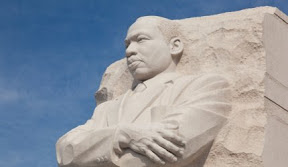Another February has come and gone and with it another Black History Month, when it’s acceptable to vocally and for no explicit reason take pride in the accomplishments and contributions of iconic black leaders.
At my grade school, A.O. Sexton in Chicago, I had an outstanding black teacher named Marion Stratton. She had posters and photos of black leaders from the U.S. and Africa in her classroom to instill pride among the students.
Because of my parents, Stratton and many others, I keenly remember the accomplishments of Marian Anderson, the famous opera singer who performed at the Lincoln Center in Washington, D.C.; Booker T. Washington, the educator and civil rights leader who opened doors into the White House; Joe Lewis, the heavyweight champion boxer who defeated Max Schmeling in 1938; and George Washington Carver, the inventor who created hundreds of products from the peanut and other commodities.
Recently, I received an email listing blacks who were the first in their fields: Jackie Robinson, Mae Jemison and Barack Obama among others. While I take pride in their accomplishments, I am bothered that we do not admire black business leaders.
I once got in a debate with one of my heroes, John H. Johnson, the late publisher of Ebony magazine, about the absence of black business leaders in the publication’s annual list of the 100 most influential black Americans. I argued that either his editors’ research was faulty or the black community devalued the impact of business leaders.
In lists of other U.S. ethnic, religious and gender groups, it is seldom the case where the vast majority are entertainers, civil rights leaders, elected officials or athletes. At the turn of the 20th century, because of racial discrimination, lack of educational opportunities and weak social networks, these were the only fields where blacks could achieve pre-eminent status. However, times have changed. Most importantly, the U.S. economy has changed, and now we can transcend levels within the free-enterprise system like never before.
Fortune magazine began the year with its Future Issue, which outlines the opportunities and challenges of the 21st century U.S. global economy. The issue established innovation, invention and visionary leadership as the key factors for success.
It highlighted Qualcomm, which was started by a father and son who used their patents and computer chips to change the world of global communication. The magazine also explored Google Ventures, founded by a 38-year-old graduate from Middlebury College. Within four years of the $100 million fund’s founding, the enterprise grew to $1.2 billion.
This year Google Ventures intends to invest $300 million in startups focusing on clean energy, education, robotics, transportation, medicine and shopping. I wonder, if innovation and invention are key to growth, how many blacks presented business plans to Google Ventures? How many black startups are even in these industries?
If the black community desires to be economically strong, we must create our own versions of Bill Gates, Steve Jobs and Mark Zuckerberg, who created mega-companies. One of the owners of Qualcomm has a net worth of $400 million. Bill Gates has a net worth of $78 billion. If the black community created 20 super-rich visionary entrepreneurs, half graduating from historically black colleges, the potential effect on our community would be enormous.
At the turn of the 20th century, we had one visionary entrepreneur — Carver. He was a genius, but never became very rich, and Tuskegee University never profited from his patents. Carver gave them away — to whom, you may ask? If you visit Tuskegee, look at the names on the buildings and you will quickly find out.
That occurred almost a century ago. Today’s venture capitalists and companies care little about age, gender or ethnicity. They, like Google Ventures, care about return on investment. Now we have to produce the next wave of George Washington Carvers in many fields, and for the good of our community and society, we must monetize them.
James H. Lowry is a senior adviser for Boston Consulting Group and inaugural member of the Minority Business Hall of Fame. He can be reached at editor@diversity-executive.com.















